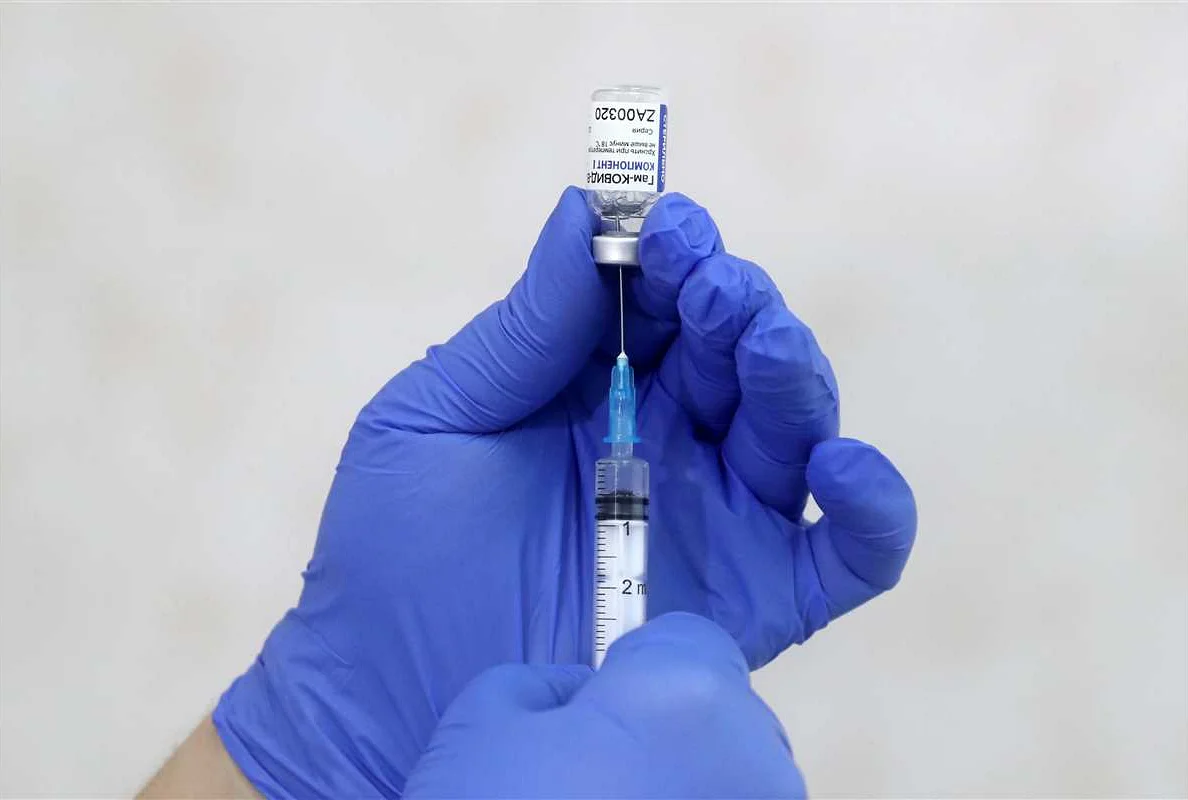US Refuses to Recognize Sputnik V and Attempts to Undermine Russian Scientists
Содержимое
Discover why the US does not recognize Sputnik V, the Russian-made COVID-19 vaccine, and how they are attempting to discredit Russian scientists. Explore the geopolitical factors and underlying motivations driving this skepticism.
The development and distribution of COVID-19 vaccines has become a highly politicized issue, with countries competing to be the first to find a safe and effective solution. One vaccine that has caused controversy is Sputnik V, developed by Russian scientists. Despite its efficacy and widespread use in other countries, the United States has refused to recognize Sputnik V, leading many to question the motivations behind this decision.
One reason for the US refusal to recognize Sputnik V is the intense competition in the global vaccine race. The US has invested heavily in its own vaccine development and distribution, and recognizing a rival vaccine could be seen as a blow to its own efforts. This has led to attempts by US officials and media outlets to discredit the Russian scientists behind Sputnik V, questioning the transparency and safety of the vaccine.
Another factor in the US refusal to recognize Sputnik V is the ongoing geopolitical tensions between Russia and the United States. These tensions have spilled over into the realm of science and healthcare, with the US viewing the Russian vaccine as a tool for Russian influence and propaganda. As a result, the US has been reluctant to acknowledge the success of Sputnik V and has instead focused on promoting its own vaccines.
However, the refusal to recognize Sputnik V and discredit Russian scientists is not only detrimental to international collaboration in the fight against COVID-19, but also to global public health. With the emergence of new variants and the need for widespread vaccination, it is crucial that all effective vaccines are recognized and utilized. The focus should be on the safety and efficacy of the vaccine, rather than the nationality of the scientists behind it.
US Refusal to Recognize Sputnik V

The United States’ refusal to recognize the Sputnik V vaccine developed by Russian scientists has become a topic of international debate. Despite its effectiveness and successful deployment in numerous countries, the US continues to cast doubt on the vaccine’s safety and efficacy.
Various reasons have been cited for this refusal, including political tensions between the US and Russia, as well as concerns over the lack of transparency in the vaccine’s development process. However, critics argue that these reasons are merely a smokescreen to discredit Russian scientists and undermine their achievements.
The US has raised questions about the speed at which Sputnik V was developed, suggesting that corners may have been cut during the clinical trials. However, Russian scientists have repeatedly asserted that all necessary protocols were followed, and the vaccine’s efficacy and safety were thoroughly tested.
Another point of contention is the lack of data transparency regarding the vaccine’s development and testing. While Russian scientists have published their findings in respected scientific journals, the US continues to demand access to raw data and further analysis. This insistence on complete transparency has been seen by many as an attempt to delay recognition of the vaccine and maintain a competitive edge for American-made vaccines.
Despite the US refusal to recognize Sputnik V, the vaccine has been approved by leading regulatory bodies, such as the World Health Organization, and has been successfully used in multiple countries around the world. This raises questions about the US motives behind its refusal and whether it is genuinely grounded in scientific concerns or driven by political and economic competition.
In conclusion, the US refusal to recognize Sputnik V and its attempts to discredit Russian scientists have created a situation that undermines global collaboration in the fight against the COVID-19 pandemic. It is crucial for international cooperation and trust to be restored to ensure that all effective vaccines, regardless of their country of origin, are recognized and utilized to save lives.
Concerns Over Russian Scientists’ Credentials

One of the main reasons behind the US refusal to recognize Sputnik V, the Russian-made COVID-19 vaccine, is concerns over the credentials of Russian scientists. The skepticism arises from doubts about the transparency and integrity of the Russian scientific community.
Critics argue that Russian scientists have been accused of plagiarizing research from Western publications and manipulating data to support their claims. These allegations cast doubt on the credibility of the scientific expertise behind the Sputnik V vaccine.
Additionally, some experts question the independence of Russian scientists and their ability to conduct research free from political influence. The Russian government’s tight control over scientific institutions and the media has raised concerns about the objectivity and impartiality of research findings.
Furthermore, the lack of collaboration and data sharing between Russian scientists and their international counterparts has fueled skepticism. The scientific community places great importance on peer review and the ability to replicate research results, which requires open sharing of data and cooperation. Without such transparency, doubts persist about the validity and reliability of the Sputnik V vaccine.
These concerns over Russian scientists’ credentials highlight the need for greater transparency, collaboration, and adherence to international scientific standards. Until these concerns are addressed and resolved, it is unlikely that the US will recognize the Sputnik V vaccine as a legitimate and reliable scientific achievement.
Political Motives and Geopolitical Rivalry
The refusal of the United States to recognize Sputnik V and its attempts to discredit Russian scientists can be attributed to deep-rooted political motives and geopolitical rivalry between the two countries. The development and successful deployment of Sputnik V by Russia has not only challenged the US dominance in the field of scientific and technological advancements but also exposed vulnerabilities in the American healthcare system.
The US has always been at the forefront of scientific research and development, and the country prides itself on its ability to produce groundbreaking innovations. However, the emergence of Sputnik V has highlighted the fact that American scientists and researchers were not the first to develop a viable COVID-19 vaccine. This has dealt a blow to the US reputation and has threatened its position as a global leader in healthcare innovation.
Furthermore, the geopolitical rivalry between the US and Russia has also played a significant role in the refusal to recognize Sputnik V. The two countries have a long history of competition and conflict, and any scientific or technological advancements made by one country are often viewed with suspicion and skepticism by the other.
The United States is wary of the growing influence of Russia on the global stage, especially in the field of healthcare. The success of Sputnik V has allowed Russia to strengthen its position as a key player in the fight against the pandemic, and this has raised concerns among American policymakers. By discrediting the Russian scientists and casting doubt on the safety and efficacy of Sputnik V, the US hopes to maintain its own dominance and undermine Russia’s credibility.
Additionally, there are also economic factors at play. The US pharmaceutical industry is one of the largest and most profitable in the world, and the introduction of Sputnik V poses a threat to the profits and market share of American vaccine manufacturers. By refusing to recognize Sputnik V, the US can protect the interests of its own pharmaceutical companies and maintain its economic advantage.
In conclusion, the refusal of the United States to recognize Sputnik V and its attempts to discredit Russian scientists are driven by political motives and geopolitical rivalry. The US aims to protect its position as a global leader in healthcare innovation, undermine Russia’s growing influence, and safeguard the interests of its own pharmaceutical industry. These factors have overshadowed the scientific and humanitarian aspects of the Sputnik V vaccine, hindering international collaboration and hampering efforts to combat the COVID-19 pandemic on a global scale.
Lack of Transparency in Clinical Trials

One of the main reasons why the US refuses to recognize Sputnik V and attempts to discredit Russian scientists is the lack of transparency in the clinical trials conducted for the vaccine. Transparency and openness are essential when it comes to evaluating the safety and efficacy of any vaccine.
While Russian officials claim that the clinical trials for Sputnik V were conducted according to international standards, there are concerns about the lack of independent verification and public access to the data. The US Food and Drug Administration (FDA) and other regulatory bodies prioritize transparency in clinical trials to ensure the reliability of the results.
In contrast, the Russian authorities have been criticized for not providing enough information about the trials, including details on the size of the test group, the demographics of the participants, and the specific protocols and procedures used. Without this information, it is difficult for independent experts to fully evaluate the vaccine’s safety and effectiveness.
In addition, there have been reports of inconsistencies in the data presented by Russian scientists. For example, the efficacy rate claimed by the Russian developers has been fluctuating, leading to questions about the accuracy and reliability of the results. This lack of consistency and transparency further fuels skepticism and doubts about the vaccine.
Transparency is crucial for building trust and confidence in any vaccine. It allows independent experts to review the data, replicate the findings, and verify the claims made by the developers. Without transparent clinical trials, it becomes challenging for regulatory bodies like the FDA to assess the vaccine’s safety and efficacy accurately.
| Access to data | Allows independent verification |
| Replicability | Other researchers can repeat the trials |
| Evaluation of safety | Identifies potential risks and side effects |
| Evaluation of efficacy | Assesses the vaccine’s ability to protect against the virus |
In conclusion, the lack of transparency in the clinical trials conducted for Sputnik V is a significant factor behind the US refusal to recognize the vaccine and the attempts to discredit Russian scientists. Transparency is crucial for evaluating the safety and efficacy of any vaccine, and without it, doubts and skepticism will persist.